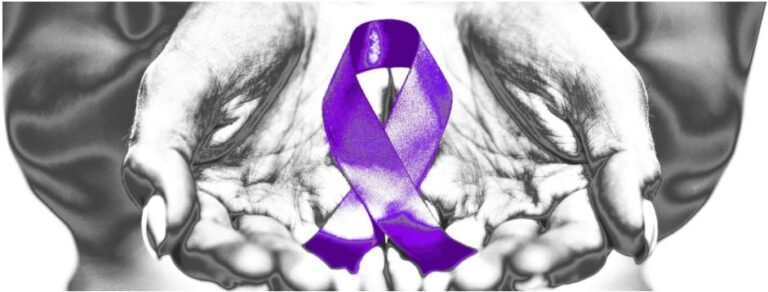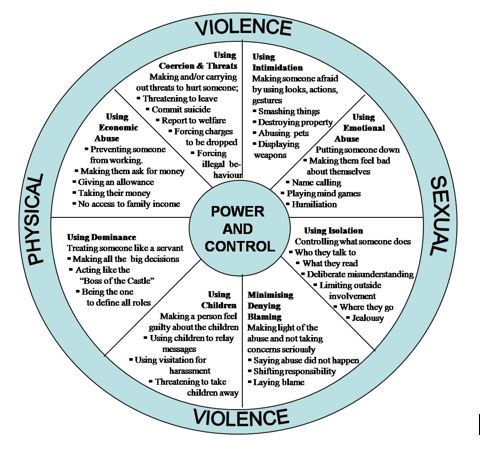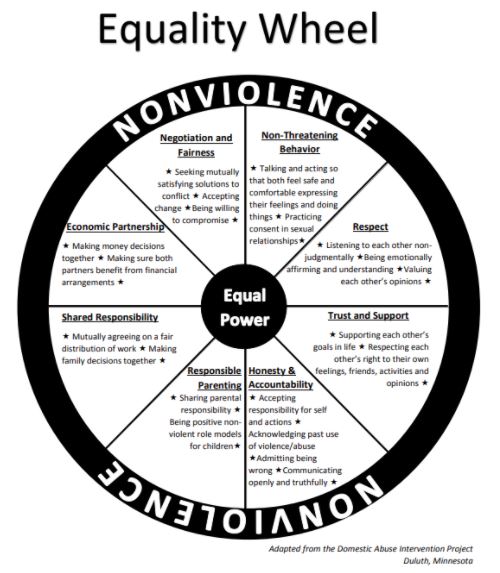October is Domestic Violence Awareness Month and the Asheville Police Department (APD) is working in partnership with local agencies to bring attention to this issue and remind the community of domestic violence services in the Asheville area.
APD statistics show a climb in domestic violence incidents in recent months. APD officers treat domestic violence calls as high priority, life-threatening situations and are specially trained on how to approach and interact with individuals involved in these situations. Officers follow a Domestic Violence Lethality Assessment protocol, which serves as a first step in getting individuals in touch with the resources they need, such as the domestic violence advocacy and crisis response organization Helpmate.
Helpmate also integrates material in A-B Tech’s Basic Law Enforcement Training curriculum. Part of this effort involves domestic violence scenario role play with cadets so they are educated from the beginning of their careers as a law enforcement officer about the dynamics of domestic violence, behaviors that occur when there is a law enforcement response and the ways officers can bridge the gap to resources while demonstrating compassion.
It is important to remember domestic abuse isn’t always physical and sometimes these situations never become physically violent.
One of the most common questions a person involved in a domestic violence situation hears is “why do you stay/ why don’t you just leave?” There are many situational barriers that can make it extremely difficult to leave an abusive situation. Some examples include fear of physical injury or death, fear of losing custody of children, social isolation and lack of economic independence. Also, abuse can be gradual, subtle and often does not occur until after an individual is emotionally invested in the relationship.
Domestic violence advocates emphasize the importance of having a plan in place when it comes to leaving a domestic violence situation.
The decision to seek help is the first step for survivors of domestic and sexual violence, and it can also be the hardest step. Friends or family who suspect abuse are also urged to educate themselves on the resources available and to use the empowerment approach when interacting with those in abusive situations. This means using kindness, compassion and offering non-judgmental support and avoiding ultimatums.
Community resources
If you or someone you know may be a victim of domestic or sexual violence, here’s how to get help or learn more information:
- Visit the Family Justice Center at 35 Woodfin St. Hours are 8 a.m. to 5 p.m. Walk-ins are welcome. Appointments can be scheduled ahead of time by calling (828) 250-6900.
- Call the Helpmate 24-hour hotline at (828) 254-0156 for free support to survivors of domestic violence. Helpmate is an on-site partner at the Family Justice Center offering emergency shelter, counseling, court advocacy and education. https://helpmateonline.org.
- Call the Our VOICE 24-hour hotline at (828) 255-7576 for free support to survivors of sexual violence. Our VOICE also works on-site at the Family Justice Center providing free counseling, advocacy, and education to victims of sexual assault or abuse. https://www.ourvoicenc.org.
If it’s an emergency, call 9-1-1. To report an incident to APD’s non-emergency number, call (828) 252-1110.
Additional resources
- N.C. Coalition Against Domestic Violence: https://nccadv.org
- National Coalition Against Domestic Violence: https://ncadv.org
- National DV Hotline website: https://www.thehotline.org
Additional photos below: visuals provided by Helpmate. They show the power and control wheel along with the equality wheel. These are visual tools used to educate the community and survivors about healthy relationship dynamics and the psychologically abusive tactics that abusers use to maintain control. They can also be used to demonstrate the barriers to leaving and the warning signs of an abusive relationship.


